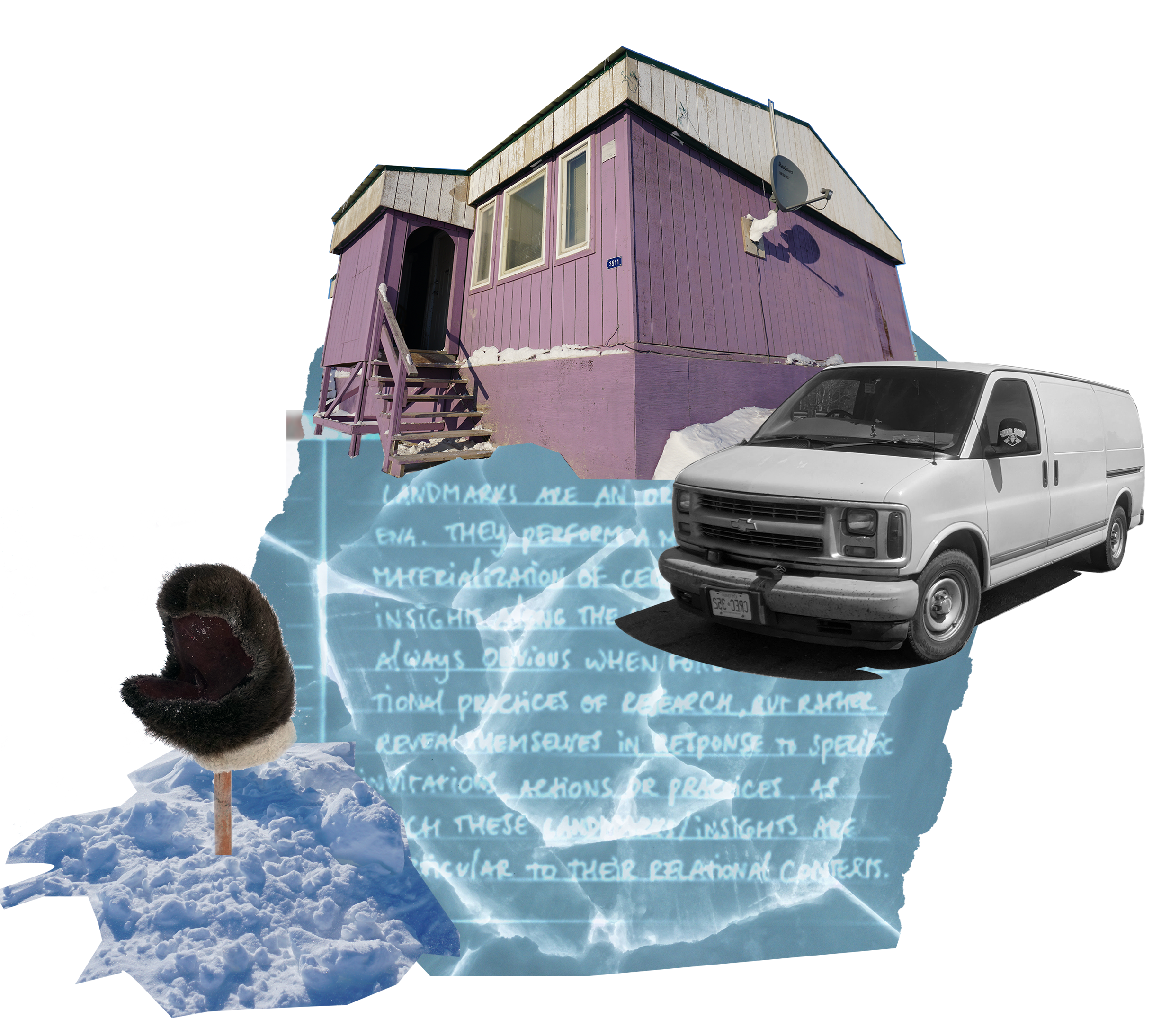Listening & Witnessing landmark

Accountability as part of an ethical cross-cultural research process with Indigenous people can’t be an afterthought. Regardless of the scope and methods of our research projects, we should as community-based researchers at the very least make space and listen to the communities we partner with.
Accountability for outcomes of scientific research is regarded within polar bear research as the responsibility of other organisations within the management environment, for example the Nunavut Wildlife Management Board (NWMB). Researchers may find, however, that they engage much more effectively with communities when they are aware of a community’s previous experiences with research and their current priorities (Castleden et al. 2012).
With limited time in the field and multiple additional responsibilities tied to academic reward structures for tenure-track positions and granting agencies, like the emphasis on production of ‘new knowledge’ and training students, the current academic landscape is not well aligned with Indigenous conceptions of relational accountability (Castleden et al. 2012). What our practice of conducting a testimonial reading however clarifies to us is that there are nevertheless ways in which we can make ourselves accountable and conduct responsible research as part of our every day-to-day research practices.
Ethical practice as part of reconciliatory research, may take the shape of creating space to listen and ask questions about responsibility. Conducting a testimonial reading allows for a form of witnessing, that holds the listener accountable. It helps us explore manners in which we can move from passive empathy towards actively implicating ourselves and asking how we may contribute to change in the practices and structures of the agential apparatuses which we are part of.
Return to Cut 1 Voices of Thunder for Another Point of Beginning
